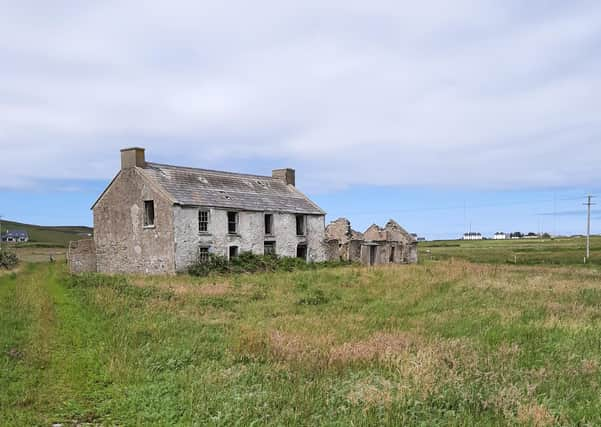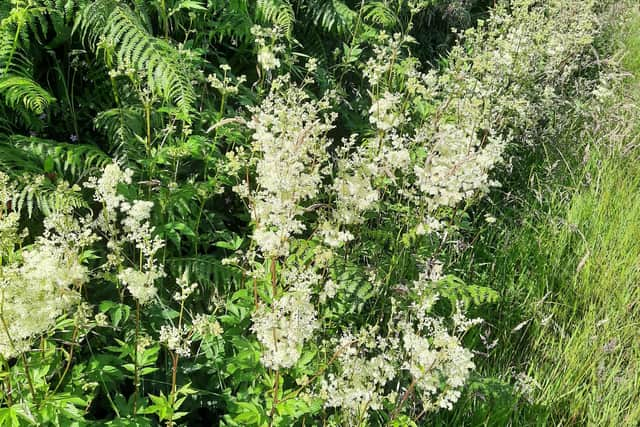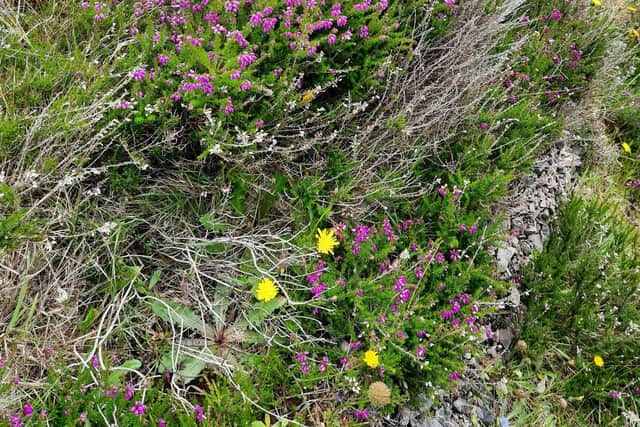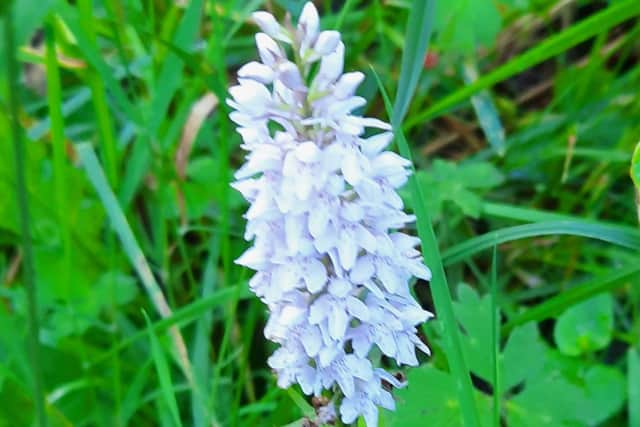Lifting the coronavirus lockdown - opportunities and challenges


These walks can become far more interesting if the knowledge of what we see around us in the natural world is increased. Part of the problem is that there is just so much nature out there. Another confusion is that the progress of the seasons mean that things change. The breeding season the birds is almost over so we hear far less singing. Flowers that were there a month ago have been replaced by ones you have never noticed before.
The best approach is to learn a little at a time. Make use of books and the internet. Find someone who knows more than you and get them to point out what they know. Every bit of new knowledge can give great enjoyment.
Advertisement
Hide AdAdvertisement
Hide AdWe are now in high summer. The hedgerows are a continuing riot of changing colours. One of the dominant flowers is the meadowsweet. Surprisingly there are also apparently exotic flowers like the common spotted orchid. There are 30 species of orchid found in Ireland growing in many habitats. They will only grow where the chemicals are absent from the soil.


On higher ground the heather is at its best. We often speak of the dangers of alien plants and animals but the fuschia, originally from the Hispaniola in the Caribbean, is a welcome addition to the landscape.
The easing of the Lockdown has allowed us to travel further afield. We are lucky in Derry. A ten minute drive gets any of us into the most fantastic countryside. Things like the hedgerow flowers we can enjoy every day but to see or hear the exceptional or rare is always a bonus. I have been driving around Inishowen in the past couple of weeks. There has been an accumulation of sights and sounds I have rarely experienced.
It began up near Malin Head. On a cliff top above FiveFinger Strand I heard and saw choughs, (pronounced chuffs). These are members of the crow family. They are jet black except for red legs and beak. They also have a surprisingly sweet call - for a crow. Putting this into context there are estimated to be 3 million pairs of robins in Ireland. Ireland is a stronghold for choughs. Nonetheless there are only about 1,500 pairs of choughs in Ireland. They are very particular about their habitat. They require cliff tops where the grass has been nibbled by sheep.
Advertisement
Hide AdAdvertisement
Hide AdShortly after seeing the choughs. I stopped the car and was immediately aware of a rasping mechanical sound. It was a male corncrake calling. There were only 150 male corncrakes recorded in Ireland last year. Their numbers have been reduced largely due to the replacement of hay meadows with silage collection. They are almost impossible to see as they almost never fly. They hide in the cover of long grass and nettles. After zero flying practice in Ireland they set off for their winter holidays to the east coast of Africa and Madagascar.


I prefer to walk by the sea where I can get the benefit of the wildlife in the sea and on the land. For all my years scanning the sea I have never seen a dolphin. I was down at Shroove beach a fortnight ago and a pod of dolphins swam past. Like Olympic divers two of them did a synchronised leap clear of the water. Just a week later they were back in the same place at roughly the same time of day. It may well be that they are following schools of mackerel into the Foyle on the incoming tide and leaving when they have eaten their fill.
There are regular surveys of the breeding birds in Ireland. By sampling it is possible to estimate the strength and weaknesses of our different species. Perhaps the most difficult bird to count is the long eared owl. This is because they are entirely nocturnal and do not reveal their presence easily. There are probably less than 3,000 pairs in Ireland. Not common and hard to spot I have only seen one before. Even given my recent good fortune, I was still delighted to spot one caught in my headlights as I drove home on the Moville road.
Still in Inishowen, this time on the walk around Inch Island I heard a strange sound. It was made by a male snipe, a small, long legged and beaked wading bird of marshy ground. The sound reminded me of a trick we played as children when we fixed cardboard to the back wheel of our bikes. This whirring sound of the snipe is called drumming. It is not voiced but is caused by the bird making a steep dive and the air passing through its tail feathers. It is part of the breeding ritual of these birds designed to attract a mate. My own efforts with bike and cardboard produced very poor results.
Advertisement
Hide AdAdvertisement
Hide AdWhether the things we see in nature are commonplace or exceptional, they all have the capacity to lift our spirits. Unfortunately all of nature is under threat from numerous pressures. Intensive farming in the case of choughs and corncrakes. The over use of pesticides which have reduced our wildflowers and insects. Wetlands, the snipe’s habitat, have been drastically reduced through continuing drainage. Owl numbers are on decline due to their ingesting poisons used to kill their main prey, rodents. The continuing pollution of the sea has an adverse affect on all marine life including the dolphins I saw at Shrove. There is also the threat of global warming which has the capacity to dwarf even the Covid 19 problem.


The current Covid crisis needs to lead to reflection about what is really important. It may be an opportunity to assess our priorities with regard to society and the planet we all depend upon. We live in hope.